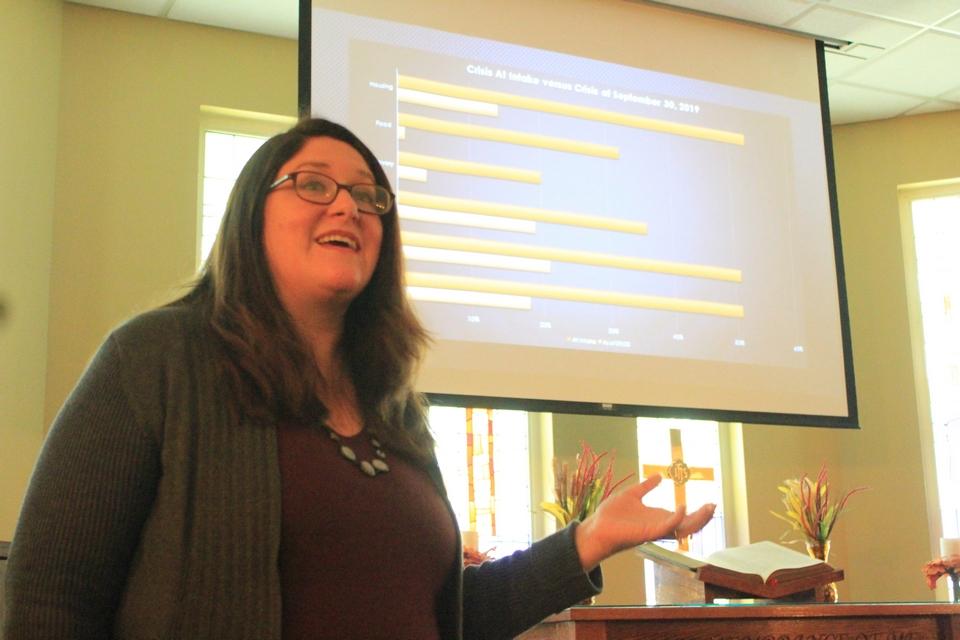First 100 Families shows early success in region

 First 100 Families Program Director Karen Phillips discusses her clients’ progress at the Sebastian County Opioid Summit on Friday, Oct. 11, 2019, at Grace Community Church in Fort Smith. [MAX BRYAN/TIMES RECORD]
First 100 Families Program Director Karen Phillips discusses her clients’ progress at the Sebastian County Opioid Summit on Friday, Oct. 11, 2019, at Grace Community Church in Fort Smith. [MAX BRYAN/TIMES RECORD]
A statewide initiative to help families impacted by incarceration, drug addiction and other challenges has shown early signs of local success.
The First 100 Families initiative in the Fort Smith region kicked off on Feb. 25 in hopes of holistically helping 100 families in need in the region. Since February, the initiative has given families overall greater stability in areas such as food security, housing, education and drug rehabilitation, according to records.
First 100 Families, which connects families in need to services through nonprofits, higher education, law enforcement agencies and other groups, was first conceived on a state level in light of incarceration and foster care rates throughout Arkansas. An estimated 16% of children in Arkansas had at least one incarcerated parent in 2016, Phillips said.
An estimated 850 inmates each year return to Sebastian and Crawford counties, Phillips said. Sebastian County in 2016 had one of the highest foster care rates in the country.
“We started discussing more about, ‘How can we continue to impact and make a positive difference?’” said Program Director Karen Phillips. “We realized that if we provided more support to families, to parents that were struggling, then we wouldn’t have children going into foster care at such great rates.”
Phillips explained that felons who return home from prison have challenges including transportation, employment and childcare when they are reunited with their children. These kinds of challenges manifest themselves, she said, when they find themselves in situations like being forced to stay home from work to take care of their sick children.
“It makes them feel as if they are set up to fail,” said Phillips, adding that this kind of hopelessness often contributes to drug relapses.
The initiative, which helps 78 families and 210 children in the region, has seen 51% of the clients reach stabilized food security, 46% reach stabilized housing and 36% reach stabilized transportation and employment, according to records. Clients at the beginning of the initiative had 23% stabilized food security, 17% stabilized housing and 25% stabilized transportation and 22% stabilized employment. More than 50% of all clients were in crisis state at the beginning of the initiative, according to records.
Crisis states for housing, food, recovery, education, employment and transportation have all decreased at least 15% since February, according to records.
“We’ve found that if a parent comes into the office and says, ‘I need help with this one thing today,’ they really need help with five things,” Phillips said.
But even with the encouraging statistics, Phillips said she still sees needs that clients in the initiative have. She specifically said single mothers, who make up 80% of the clients in the program, need additional support for their children when they find a job.
She also said clients in the program also need flexibility in their work schedules because of their children.
“A new generation needs to come up with some new ideas with how to fix these problems and have a new mindset about it,” she said.
 Pathways Drug Rehabilitation Luxury Addiction Treatment & Detox Center
Pathways Drug Rehabilitation Luxury Addiction Treatment & Detox Center


